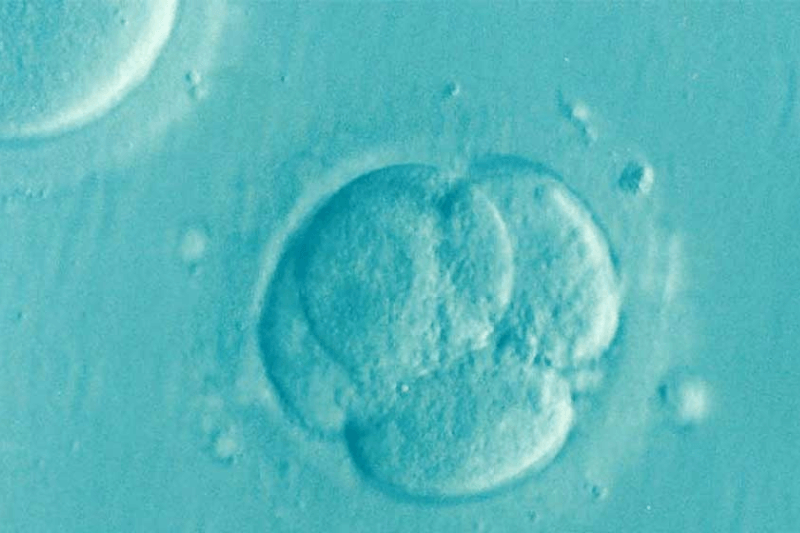Conceive with Third Party Donor Services
What Is A Donor
A reproductive donor is a person who has donated gametes (sperm or eggs) to assist another person or couple in achieving pregnancy. Donors can provide either sperm (sperm donors) or eggs (egg donors) to intended parents who require assistance in conceiving a child.
In some cases, a gestational carrier, also known as a surrogate, may be involved to carry the pregnancy to term. There are three types of donor.
- Sperm Donors: Sperm donors provide semen samples for artificial insemination or IVF. Sperm banks thoroughly screen donors for medical history, genetic disorders, and infectious diseases. Donor sperm allows for the conception of a child by heterosexual couples, single women, and same-sex female couples.
- Egg Donors: Egg donors undergo a rigorous process to extract their eggs, which are then fertilized with sperm through IVF. This method allows for the conception of a child using the genetic material of the intended father or sperm donor. Egg donors are often chosen for their physical and genetic attributes.
- Known Donors: In some cases, individuals or couples may opt for known donors, such as a family member or close friend, to provide gametes. Known donors are typically subject to the same medical and psychological assessments as anonymous donors.
Who May Benefit from Using a Donor?
Donor-assisted reproduction can be a valuable option for a wide range of individuals and couples:
- Heterosexual Couples: Couples facing fertility issues, such as male infertility, blocked fallopian tubes, or diminished ovarian reserve, may benefit from donor-assisted reproduction.
- Same-Sex Couples: Same-sex couples, including gay men and lesbian women, rely on donors to build their families.
- Single Parents: Single men and women who desire parenthood but do not have a partner can turn to donors as a means of having a child.
- Individuals with Genetic Conditions: Individuals carrying genetic disorders may choose donor-assisted reproduction to prevent the transmission of these conditions to their offspring.
- Older Parents: Women in their late 30s or early 40s who wish to have a biological child may use donor eggs due to age-related fertility challenges.
Why Use A Donor?
Infertility: Infertility is one of the primary reasons why individuals or couples turn to reproductive donors. Conditions such as blocked fallopian tubes, low sperm count, or premature ovarian failure can make it challenging to conceive naturally. Donor sperm or eggs can provide a viable solution.
Genetic Disorders: Some individuals may carry genetic disorders that they do not wish to pass on to their offspring. Using a donor with healthy genes can help reduce the risk of passing on these genetic conditions.
Same-Sex Couples: Same-sex couples, both male and female, often require a donor to have children. For male couples, sperm donation is necessary, while female couples may require both sperm and egg donors.
Single Parents: Single individuals who wish to become parents may choose to use reproductive donors, either through artificial insemination (with donor sperm) or in vitro fertilization (IVF) with donor eggs.
Age-Related Issues: As a woman’s age advances, her fertility declines. Donor eggs may be used to overcome age-related fertility issues, allowing older women to carry a pregnancy successfully.
How Does Using a Donor Work?
Egg donation: Eggs (oocytes) are obtained from a fertile woman and donated to a woman who is unable to produce eggs herself. The donor can be known to the couple such as a friend or family member or the donor could be anonymous. Eggs can also be obtained already frozen from a reputable an egg bank and shipped directly into our center. To retrieve oocytes, a donor undergoes ovulation stimulation, then the eggs are harvested during a simple outpatient procedure at our office. Next, the eggs are fertilized in the laboratory with sperm from the recipient’s partner. The resulting embryos are placed in the recipient’s uterus, usually through in vitro fertilization (IVF). By using an egg donor, an otherwise infertile woman can successfully carry a pregnancy.
Sperm donation: Sperm is usually purchased from a reputable sperm bank and the donor is anonymous. Donor sperm is shipped to our office frozen, thawed and used for insemination, either during a woman’s natural ovulation cycle or an ovulation induction cycle. A sperm donor can also be known to the couple such as a friend or family member.
Embryo donation: Couples who have previously undergone IVF may have extra embryos stored in our laboratory. Sometimes, these couples decide that their families are complete and donate their remaining embryos so that another infertile couple can realize their dream of building a family. These donations are usually anonymous.
In the case of frozen embryos, the female recipient is given medication to grow her uterine lining, and the frozen embryos are thawed and transferred to the recipient’s uterus, usually through IVF. Success rates depend on the age of the female donor at the time the embryo was created. The younger the donor, the higher chance of success.
Gestational carrier: An egg and sperm are retrieved from a couple who wants to have a baby, and then fertilized in our lab to create one or more embryos. Or, a donated egg is fertilized by the male partner’s sperm. In some cases, donated sperm is used to fertilize a woman’s egg, or a donated embryo is used. In all cases, a fertilized embryo is placed in the gestational carrier’s uterus to grow into a baby. A gestational carrier is not the same as a surrogate, who donates her own eggs for the pregnancy.
If you are unable to get pregnant on your own and would like to learn more about third-party options, contact us today!
Frequently Asked Questions About Donors
How are donors screened?
Donors, whether sperm or egg donors, go through rigorous screening processes. They undergo medical, genetic, and psychological assessments, along with testing for infectious diseases. This ensures the health and safety of the donors and the intended parents and offspring.
Are donors anonymous or known?
Donors can be either anonymous or known. Anonymous donors do not have contact with the intended parents, while known donors are typically people the intended parents know personally.
What are the legal implications of using a donor?
The legal implications vary by region and country. It is crucial to consult with legal professionals who specialize in reproductive law to ensure all legal matters, including parental rights, are properly addressed.
What is Third-Party Reproduction?
In most cases, third-party reproduction is just like the name suggests — more than two people are involved in starting a pregnancy. Women who don’t have a male partner also may decide to use a third party to have a baby. The “third party” might be donor sperm, donor eggs, donor embryos or a gestational carrier or a combination of multiple donors. Our team assists patients with a variety of fertility treatment options using known or anonymous third-party donations.
Who is a Good Candidate?
Couples may choose donor sperm if the male partner has significant male factor infertility, meaning the man does not have enough sperm for insemination, or sperm can’t be retrieved for in vitro fertilization (IVF) for a variety of reasons. It can also be used in cases where the man has a genetic condition he does not want to pass on to his child, or he has an infectious disease, such as HIV or hepatitis, that he does not want to risk transmitting to his female partner. It’s also very common for single women and female same-sex couples use donor sperm to conceive a child.






